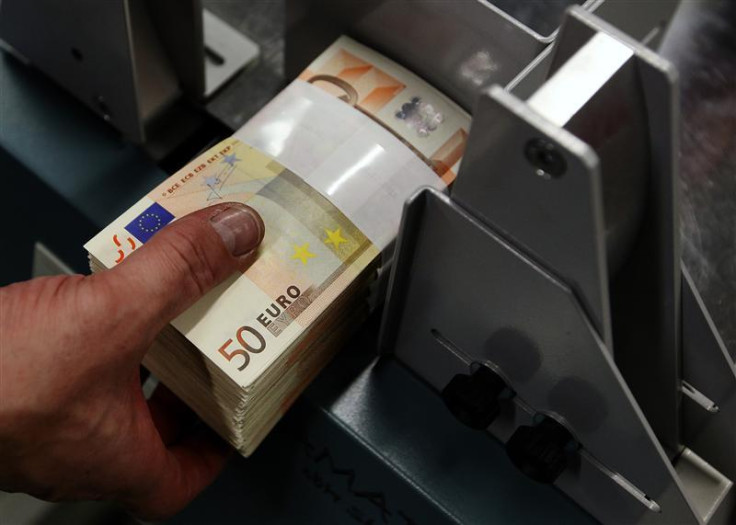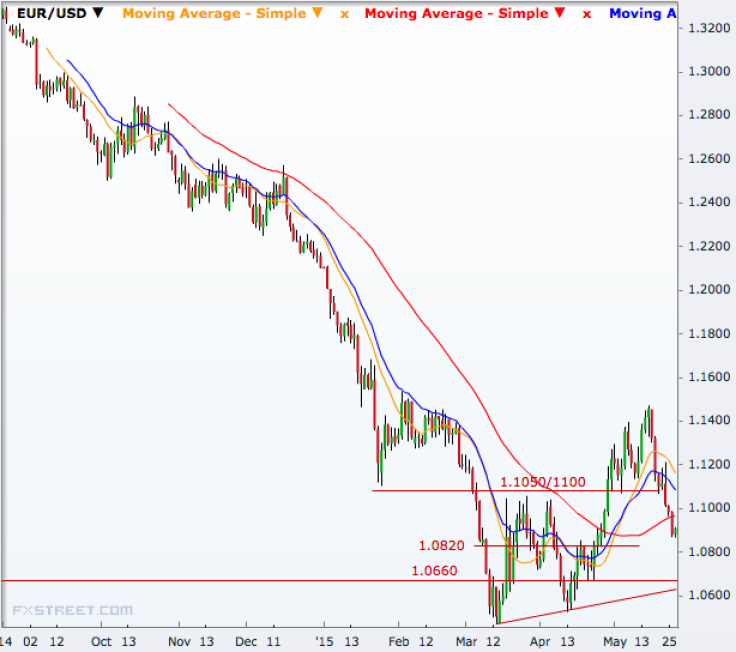Euro hovers near 1-month low amid Greek default woes, $1.0660 in target

The euro broke a key support to hit a new 1-month low against the dollar on Wednesday as Greek default woes increased and as the impact of last week's hawkish Fed comments stayed.
European and Greek bond yields have risen sharply with the Greek 2-year notes seeing a 2 percentage point rise in the yield on Tuesday. German 30-year bonds auction later on Wednesday will therefore be watched keenly.
Some analysts are of the view that Thursday's G7 finance ministers' meeting in Germany may be watched for likely inclusion of Greece in the agenda.
Federal Reserve Chair Janet Yellen said on Friday that although a rate rise is not imminent that will happen later in the year. In addition, economic data points including conference board consumer confidence for May and April home sales figure came better than expected, adding to the strength of the greenback.
EUR/USD fell to 1.0862 on Wednesday, its lowest since 27 April, from the previous close of 1.0872. The pair was supported at the 50-day simple moving average on Monday but that was broken on Tuesday.
The SMA line that stays at 1.0959 as on Wednesday has now turned a resistance ahead of a more important 1.1050-1.1100 region.
However, the pair now has more risks to the downside than to the higher side and 1.0660 is the next major support to watch even though 1.0800 may offer some support ahead of that.
A break of 1.0660, the support point as on Wednesday on the trend line drawn from the 12-year low of March, will open doors to the decade lows once again.
As Europe opened on Wednesday, the single currency managed to bounce off Asian lows and hit as high as 1.0909, also helped by a better than expected German data.
The GfK consumer confidence for June rose to 10.2 from 10.1 recorded in May while the market had been expecting 10.0.

© Copyright IBTimes 2024. All rights reserved.






